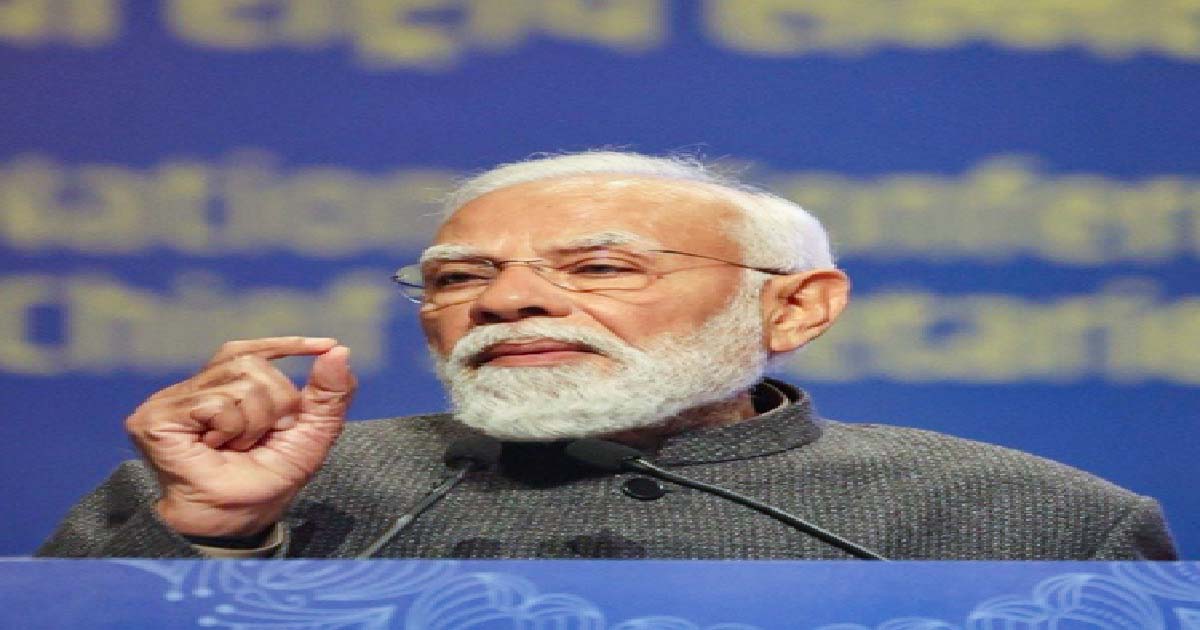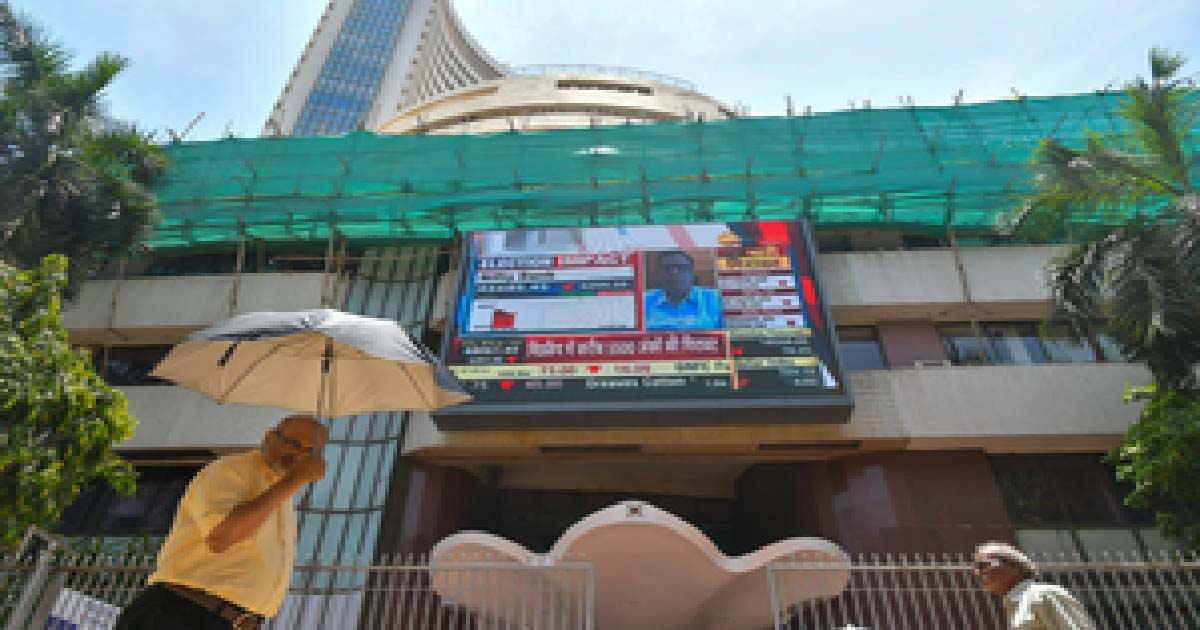Business
Motor TP insurance: Administered price, long term cover vs deregulated price, one year cover

The Indian general insurance industry is divided on the aspect of long term versus one year motor third party risk cover and its pricing mode.
However, they are unanimous in their view that the third party insurance should be under them and not with the central government or administered as a pool.
Vehicle insurance policies are two parts — own damage (insurance for the vehicle against damage, theft) and third party liability (liability for third parties).
The third party insurance cover is mandatory whereas the insurance cover for vehicle damage is not mandatory. The premium is fixed by Insurance Regulatory and Development Authority of India (IRDAI).
The general insurer’s role in designing the risk cover, promoting it, and fixing the premium is almost zero.
“I am for the deregulation of the third party premium rates. The premium rate is not administered one in major countries,” Varun Dua, Managing Director and CEO, Acko General Insurance Limited, told IANS.
Like him, many CEO when asked by IANS agree for deregulation of premium rates but strangely that is not happening.
Even after two decades after liberalisation of the sector citing various reasons including reduction in premium, insurers seem to want the price to be administered with yearly upward revision and not as per their claims experience.
Nearly 40 per cent of the general insurance business is from the motor insurance vertical and a major portion of that from third party risk cover, insurers are not enthusiastic about any changes resulting in lower premium and investment income.
Contrary to the claims made by the general insurers that they are incurring huge losses under the motor portfolio, the numbers as per the Insurance Information Bureau of India (IIB) study shows the contrary.
In its annual report on motor insurance for the fiscal 2018-19, the IIB said a sum of Rs.35,519 crore of motor claims – towards vehicle damage (Rs.18,262 crore) and third party liability (Rs.14,257 crore) were settled during 2018-19- while the gross underwritten premium was Rs.64,522.35 crore.
According to the report, the average settlement amount for death claims during fiscal 2018-19 was Rs. 901,207 and for injury claims it was Rs. 251,094.
The industry players also claim that a large number of vehicles run on the roads without third party insurance.
However, they do not have any answer when asked how that impacts them as they pay claims only on those policies issued by them and it is for the police to penalise the violators.
Industry players say they bring in efficiency in third party loss management when queried about insurers being freed of third party insurance in favour of the central government or administered as a pool.
“The insurer is bringing in expertise and efficiency in loss administration and fraud control. At the same time, claims administration requires a lot of manpower and infrastructure which has already been set up and improved by various insurers,” Adarsh Agarwal, Appointed Actuary, Go Digit General Insurance told.
According to him, a policyholder decides on the mode of claim for vehicle damage – whether under own damage part or getting into an arbitration for a third party claim under a third party property damage clause- separating the two may put him into difficulty.
Unless there is a process advantage that speeds up the third party claims with the judiciary involved, Agarwal added.
“One cannot wish away the role of insurers. They ensure easy access, availability of such insurance products which cannot be replicated by an already overburdened government,” R. Raghavan, former General Manager of General Insurance Corporation of India (GIC Re) and founder CEO of Insurance Information Bureau of India (IIB) told IANS.
Insurers are well equipped to handle the stretched claims process in Motor Accident Claims Tribunals and subsequent litigation, he added.
Raghavan said, though IRDAI still keeps finalising the premium rates, the insurers supply necessary data for the actuarial pricing process.
On the point of long term motor third party policy Raghavan said: “It is in the interest of the society at large, for insurance terms to be longer in duration. It also helps insurers to balance their books towards making adequate provision for such long tail liabilities. Portability may effectively undo this equity and also lead to wild goose chase in pinning the right insurer for payment. An insurer with a multi year commitment will work on price efficiency too,” Raghavan said.
Differing on that Agarwal said: “Long term policies have a twofold problem. A customer is encouraged to stick to one company despite the service quality they get from the current insurer as changing the insurer has an inherent inertia mid-way. Secondly, accounting the spare portion and labour cost for a longer term, given the inflation, is tricky and not ideal for the general insurance industry.”
“If one makes non-life insurance a long-term contract, the capital needs, provisioning norms and others would kick in. How it would impact an insurer in the future as motor third party claims are long-tailed ones is not known now,” and industry official told preferring anonymity.
Locking in a policyholder for five long years with one insurer also makes the playing field anti-competitive and anti-policyholder.
“The vehicle dealers will have an upper hand. They will demand higher compensation from the insurers. Already dealers are selling only policies of those insurers from whom they get higher commissions and other perks,” an industry official told
Business
Sensex, Nifty end flat amid mixed sectoral cues

Mumbai, Dec 30: Indian benchmark indices ended Tuesday’s session almost flat, but with a slight negative tone, as gains in PSU banks, metal and auto stocks were offset by selling pressure in IT, FMCG, realty and pharma shares.
The Sensex closed at 84,675.08, slipping 20.46 points or 0.02 per cent, while the Nifty settled marginally lower at 25,938.85, down 3.25 points or 0.01 per cent.
“The Nifty has also slipped below the 21 EMA, reinforcing the short-term downtrend. Immediate support is placed in the 25,850–25,870 zone,” market watchers stated.
“A decisive break below this level could intensify bearish sentiment, while resistance is placed at 26,000,” analysts mentioned.
Markets witnessed a cautious mood as investors balanced sector-specific buying against profit booking in select heavyweights.
On the Sensex, stocks such as Eternal, Infosys, Asian Paints, UltraTech Cement and Bajaj Finance ended among the top losers, weighing on the index.
On the other hand, M&M, Tata Steel, Bajaj Finserv and Axis Bank provided support and closed higher.
The broader market also saw mild weakness. The Nifty Midcap 100 index ended lower by 0.15 per cent, while the Nifty Smallcap 100 declined 0.28 per cent.
Sector-wise, real estate, IT and pharma stocks remained under pressure. The Nifty Realty index fell 0.84 per cent, while the Nifty IT and Pharma indices declined 0.74 per cent and 0.17 per cent, respectively.
In contrast, strong buying was seen in PSU bank, metal and auto stocks. The Nifty PSU Bank index jumped 1.69 per cent, the Nifty Metal index rose 2.03 per cent, and the Nifty Auto index gained 1.08 per cent.
Analysts said that the market ended the day on a flat note as investors preferred selective buying, with sectoral trends driving movement rather than broad-based participation.
“Fresh buying at lower levels, along with short covering in banking, auto, and metal stocks following the expiry of monthly derivative contracts, helped the Nifty recoup most of its intraday losses and close the session largely flat,” market watchers mentioned.
Business
From labour laws to market reforms, India’s growth story built on credibility and stability: PM Modi

New Delhi, Dec 30: Prime Minister Narendra Modi on Tuesday said that India’s growth story is being shaped by credibility, stability, and long-term confidence, driven by a series of sustained reforms across sectors ranging from labour laws and trade agreements to logistics, energy, and market reforms.
In a post on X, the Prime Minister referred to Union Minister Hardeep Singh Puri’s write-up on “Reform Express 2025”, which reflects the “quiet but consistent work of governance that has helped clear long-pending bottlenecks week after week”.
PM Modi said these steady reforms are laying a strong foundation for India’s future growth.
“Union Minister Hardeep Singh Puri writes on Reform Express 2025. He reflects on the quiet, cumulative work of governance that cleared bottlenecks week after week,” he said.
“From labour laws and trade agreements to logistics, energy and market reforms, India’s growth story is being built on credibility, stability and long-term confidence,” he added.
In his article, Union Petroleum and Natural Gas Minister Puri highlighted how the PM Modi government’s reform push is improving ease of doing business and strengthening investor confidence.
Puri had described “Reform Express 2025” as the cumulative impact of consistent governance, where obstacles are addressed regularly rather than through sudden, disruptive changes.
He had said that in an uncertain global environment marked by political instability, the steady leadership of Narendra Modi stands out.
Puri had pointed out that key steps such as modern labour codes, major trade agreements, the Securities Market Code Bill and the Indian Ports Act 2025 are creating a solid base for long-term economic expansion.
He also said that the SHANTI Bill is a major step towards modernising India’s civil nuclear framework.
According to the minister, these reforms follow a clear pattern of cleaning up outdated laws, decriminalising minor offences, modernising labour compliance, strengthening market oversight, digitising trade processes, improving logistics, and reducing risks in long-term energy investments.
Business
Sensex, Nifty trade flat amid mixed global cues

Mumbai, Dec 29: Indian benchmark indices traded flat with a mild positive bias early on Monday, tracking mixed global cues and subdued year-end participation.
As of 9.30 am, Sensex moved up 40 points, or 0.04 per cent to 85,081 and Nifty gained 14 points, or 0.05 per cent to 26,057.
Main broad-cap indices performed in line with benchmark indices, with the Nifty Midcap 100 advanced 0.14 per cent, while the Nifty Smallcap 100 added 0.18 per cent.
Tech Mahindra, Tata Steel and NTPC were among the major gainers in the Nifty Pack, while losers included Bajaj Finserv, Axis Bank, Bajaj Finance and Tata Consumer.
Among sectoral gainers, the Nifty Metal index was the top performer, rising 1.11 per cent, followed by Nifty Auto and Nifty Realty, which gained 0.26 per cent and 0.25 per cent, respectively.
According to analysts, immediate support is placed at 25,850–25,900 zone, while 26,150–26,200 remains a crucial resistance band. Stable crude prices and a relatively steady rupee continue to offer underlying support, preventing sharp downside.
They further said that underperformance of India compared to most developed and emerging markets in 2025 is set to change in 2026 as Indian macros are in the ‘Goldilocks’ zone, with robust economic growth and recovery in earnings from Q3 FY26.
However, these factors are not enough to spark a rally soon, market watchers said. The market needs a US-India trade deal with positive surprises for India to rebound. A consolidation phase is likely in the near term in the absence of such surprises, they added.
Asia-Pacific markets traded mixed in the morning session, as investors kicked off the final trading week of the year.
In Asian markets, China’s Shanghai index advanced 0.31 per cent, and Shenzhen edged up 0.03 per cent, Japan’s Nikkei lost 0.31 per cent, while Hong Kong’s Hang Seng Index gained 0.39 per cent. South Korea’s Kospi added 1.52 per cent.
The US markets ended in the red zone on the last trading day, as Nasdaq lost 0.09 per cent, the S&P 500 eased 0.03 per cent, and the Dow moved down 0.04 per cent.
On December 26, foreign institutional investors (FIIs) sold equities worth Rs 317 crore, while domestic institutional investors (DIIs) were net buyers of equities worth Rs 1,772 crore.
-

 Crime3 years ago
Crime3 years agoClass 10 student jumps to death in Jaipur
-

 Maharashtra1 year ago
Maharashtra1 year agoMumbai Local Train Update: Central Railway’s New Timetable Comes Into Effect; Check Full List Of Revised Timings & Stations
-

 Maharashtra1 year ago
Maharashtra1 year agoMumbai To Go Toll-Free Tonight! Maharashtra Govt Announces Complete Toll Waiver For Light Motor Vehicles At All 5 Entry Points Of City
-

 Maharashtra1 year ago
Maharashtra1 year agoFalse photo of Imtiaz Jaleel’s rally, exposing the fooling conspiracy
-

 National News1 year ago
National News1 year agoMinistry of Railways rolls out Special Drive 4.0 with focus on digitisation, cleanliness, inclusiveness and grievance redressal
-

 Maharashtra1 year ago
Maharashtra1 year agoMaharashtra Elections 2024: Mumbai Metro & BEST Services Extended Till Midnight On Voting Day
-

 National News1 year ago
National News1 year agoJ&K: 4 Jawans Killed, 28 Injured After Bus Carrying BSF Personnel For Poll Duty Falls Into Gorge In Budgam; Terrifying Visuals Surface
-

 Crime1 year ago
Crime1 year agoBaba Siddique Murder: Mumbai Police Unable To Get Lawrence Bishnoi Custody Due To Home Ministry Order, Says Report












